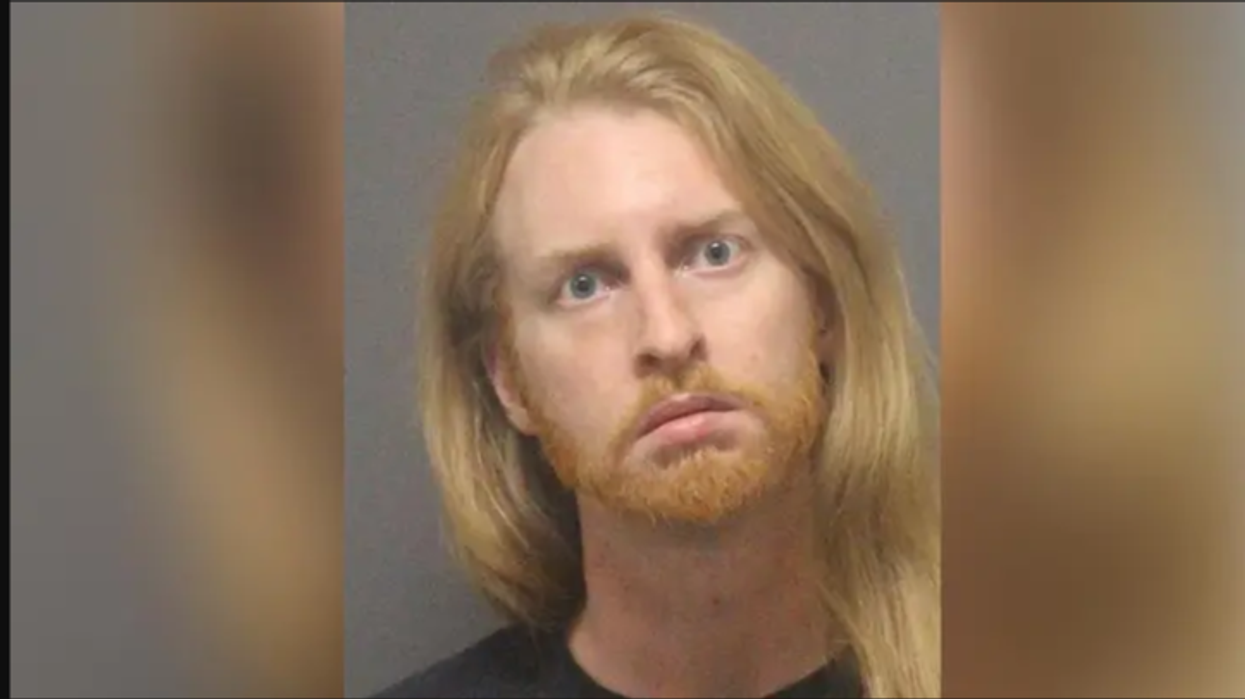It's been just over a week since the second assassination attempt on President Trump, and the story has only gotten stranger.
If you were uneasy about the lack of disclosed information about Trump's first assassin, Thomas Matthew Crooks, despite his seemingly innocuous background, you will be shocked by what we do know about Trump's second would-be assassin, Ryan Routh. Routh has a mile-long criminal record along with even more highly suspicious activity linked to his name. How he managed to be within a mile of the president with a firearm is a mystery.
Here are five CRAZY facts about Ryan Routh that only make the situation even more insane:
Criminal background

Anadolu / Contributor | Getty Images
Many people noted how calm and collected Routh appeared during his arrest, and as it turns out, that was due to practice. Routh has a colorful criminal history stretching back two decades. We're not talking about traffic violations and noise complaints. In 2010 Routh was convicted of possession of stolen property, which included a pickup truck, three trailers full of stolen tools, and building materials. Routh was also using the property without the owner's knowledge and had threatened a neighbor with a knife when he was asked to clean up the land.
In 2002 Routh was arrested for possession of several explosive devices, and months later, he was in an armed standoff with the police while in possession of a fully automatic weapon. He was later charged with possession of a weapon of mass destruction. He managed to dodge prison by paying a whopping $225 fine and serving 60 months of probation. Who is this guy's lawyer?!
No prison time

Anadolu / Contributor | Getty Images
With a rap sheet like that, you would expect Routh to have served some serious prison time. But, no, it seems that despite his crimes, which again, include being in possession of a weapon of mass destruction, Routh has never seen the inside of a jail cell. It makes you wonder why he apparently received special treatment. Was this a failure of the court system? Who is Ryan Routh?
Strange travels

SERGEI SUPINSKY / Contributor | Getty Images
While on probation, which generally means you cannot leave the state without permission, Routh managed to travel to Costa Rica. While this might seem innocent at first, Blaze News journalist Steve Baker explained to Glenn that there is a darker side to the tourist industry in the small nation. Baker explains that if someone is not going for the beaches, they are going for the sex trade and/or the money laundering. While there is no evidence that Routh did anything unsavory while in Costa Rica, given his fondness for lawless behavior, it seems unlikely that he was just lounging in the sand.
Routh also traveled to Kiev in an attempt to aid Ukraine's fight against Russia, with little results. Routh never served in Ukraine's International Legion, apparently being rejected by the Ukrainian command. That didn't stop Routh, who lingered in the capitol city rambling unhinged ideas to vanquish Russia, which included recruiting Afghani commandos. Routh's obsession with Ukraine's war was called "unhealthy" by Ukrainian soldiers, and his obsession even drove him to write a self-published book titled Ukraine's Unwinnable War.
Strange letter

Anadolu / Contributor | Getty Images
Glenn recently covered a startling revelation in the assassination saga. Routh apparently left a mysterious package with another person several months before his attempted assassination. This other person held on to the package and did not open it until after Routh was caught. Inside was some ammunition and a strange letter addressed to the world. In the letter in which he acknowledges his failure to kill the former president and offers a bounty of $150,000 to anyone who finishes the grisly task. Remember, the letter was written months before the assassination attempt.
This creates more questions than it answers: who was this person who held onto the package? Why did they wait so long to open the box? Was Routh planning on failing his assassination attempt, or was there a "success" letter in that box? Where is this $150,000? And why did the DoJ release this letter that encourages more assassination attempts on Trump?
Son was arrested on child porn charges

Courtesy of Guilford County Sheriff’s Office
The latest development in this crazy escapade comes in the form of another arrested member of the Routh family. Oran Routh, the son of Ryan Routh, was arrested earlier this week on federal charges of possessing child pornography. Investigators claim that the discovery of the illicit material was discovered during a search conducted "in connection with an investigation unrelated to child exploitation."
Oran was interviewed over the phone shortly after his father was taken into custody, where he claimed no prior knowledge of his father's plans and was shocked to hear the allegations held against him. Oran also appeared to be ignorant of his father's criminal past, stating, “He’s my dad, and all he’s had is a couple traffic tickets, as far as I know." Surprisingly, Oran spent much of the interview bashing President Trump and the current state of American politics and admitted that he and his father had grown apart in recent years.
Oran, who like his father, has a criminal history including impaired driving and assault, appears to be following in his father's footsteps.

 JIM WATSON / Contributor | Getty Images
JIM WATSON / Contributor | Getty Images
 Joe Raedle / Staff | Getty Images
Joe Raedle / Staff | Getty Images AASHISH KIPHAYET / Contributor | Getty Images
AASHISH KIPHAYET / Contributor | Getty Images Harold M. Lambert / Contributor | Getty Images
Harold M. Lambert / Contributor | Getty Images